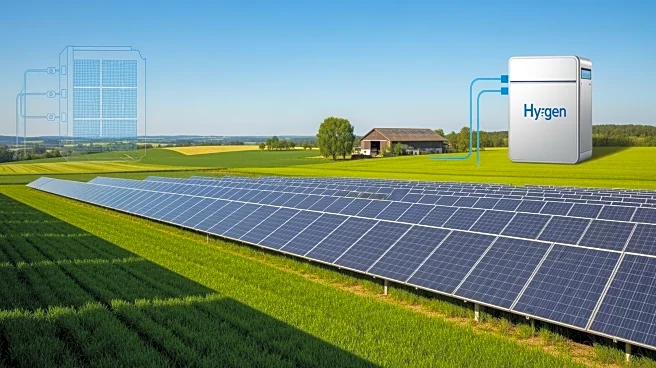What's Happening?
The University of Exeter is conducting research on integrating agrivoltaics with green hydrogen production. This involves using solar power to produce hydrogen through electrolysis, offering a sustainable
alternative to traditional hydrogen production methods reliant on natural gas and coal. The study focuses on a simulated 1-gigawatt solar power plant and examines the economic viability of this dual-use system for farmers. The research highlights the potential for agrivoltaics to support food systems while producing green hydrogen fuel, particularly for fuel cell electric vehicles (FCEVs) in regions like Australia, California, China, Nigeria, and Spain.
Why It's Important?
This research is significant as it explores a sustainable method to produce hydrogen, a key component in the transition to clean energy. By combining agrivoltaics with hydrogen production, farmers can potentially increase their revenue streams while contributing to energy sustainability. The study's findings could influence policy and investment in green hydrogen, particularly in regions with strong industrial demand. The integration of agrivoltaics and hydrogen production could also mitigate range anxiety for FCEV users, promoting wider adoption of hydrogen fuel cell technology.
What's Next?
The research suggests that further exploration of agrivoltaics and hydrogen production could lead to broader adoption of these technologies. The European Union is already supporting projects that co-locate agrivoltaics with hydrogen production, indicating a potential trend towards decentralized energy solutions. In the U.S., similar initiatives could gain traction, especially with federal support for green hydrogen. The study's outcomes may encourage more farmers and industries to adopt these technologies, potentially reshaping the energy landscape.












